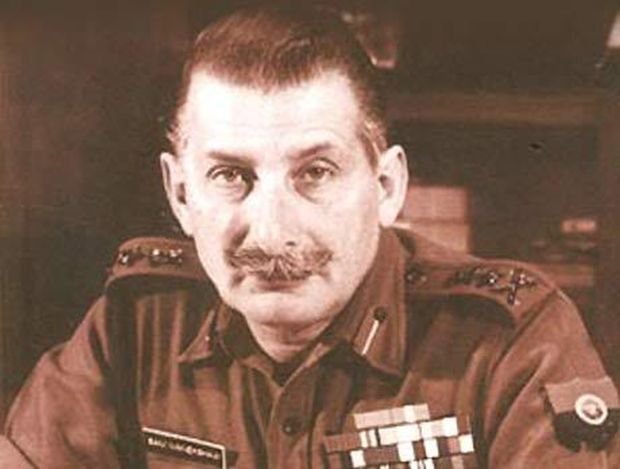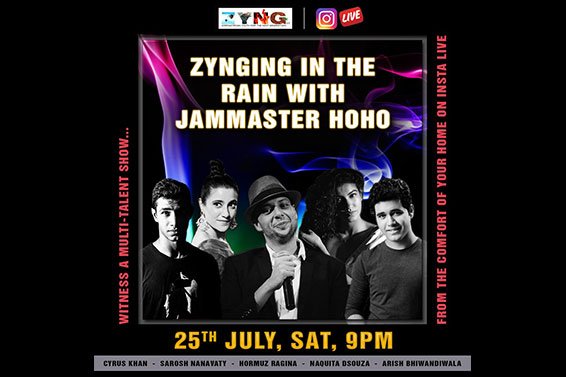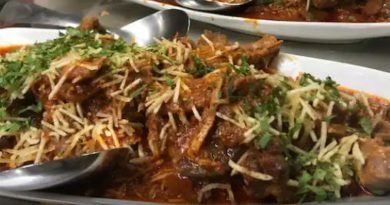Field Marshal Sam Manekshaw as I knew him
Field Marshal Sam Manekshaw was hero of India. Under his command the Indian Army had defeated the Pakistan Army meat and proper in December 1971 and taken into custody over 93,000 soldiers and civilians of Pakistan as prisoners of war (POWs in the military lingo). The morale of an average Indian person was sky high.

When General AAAK Niyazi of Pakistan Army signed the surrender document at the Ramna race course, Dakha and handed over his revolver to Lt.Gen. J. Aurora, Chief of the combined armies of India and the Mukti Bahini of the then East Pakistan, there was a thunderous applause and pro-India slogans were raised time and again.
It was there on the afternoon of 16th December 1971 that General Maneksha’s strength of character in dealing with Bangladesh citizens and refusing to handover Pakis to Mukti Bahini to be lynched, came into prominence. Sam followed the Geneva Convention in dealing with the PoWs while the large and angry crowds were baying for their blood.
General Sam Manekshaw’s firmness was appreciated by one and all. The Government of India had other plans up its sleeves. After a long time an announcement was made.
General Sam Hormusji Framji Jamshetji Manekshaw would be elevated to the rank of Field Manekshaw in recognition of his services to the country during the war and leading the Indian Army to a massive victory leading to dismemberment of Pakistan, this fact was a foregone conclusion.
The one and the only one
The Indian Army never had an officer of the rank of a Field Marshal. The problem was: what shape, size and colour the badges of rank would be. Books and pictures of the Royal British Army were consulted, drawings made and emergency orders placed. Fortunately everyone played the ball and both the badges of rank and the Field Marshal’s Baton were delivered to the ceremonial desk of Army Headquarters well in time.
President Varahgiri Venkat Giri anointed Sam with the badges of rank of a Field Marshal, the first and the only one up to that moment in the post independence Indian Army. Of course, the wartime Indian Army did have British officers of that august rank like Field Marshal Slim of the Burma campaign who made history and wrote a book “Defeat Into Victory” that is read by the staff and students of all Staff Colleges as a masterpiece of military history. Sam Manekshaw too had played an important role in the Burma Campaign when he fought bravely in the battle of the Sittang Bridge. More on that a little later in the present narrative.
Akashvani Interview
Here was the time and opportunity to record and broadcast an interview with Sam in conversational Hindi in a chatty style and inform all soldiers-in -arms to tune in. Administratively it was all hunky dory and culturally just hilarious. A sober newspaper like the Statesman commented positively on it.
Sam was at his best behaviour wise and did not lose his cool even once while the recording went on for an hour plus. Of course the broadcast time allotted was only 40 minutes. Sam never asked me what I would do with the remaining 20 mts. I had not made any plan either.
I was a Major then and worked in the Akashvani for the Forces Programme. This was my first interview with the senior most serving officer of the Indian Army who had a halo too. As the tape started rolling and the light turned red I shot my first question to find out what the secret of his success was.
His prompt answer floored us “Major Sawant, you have used a word – aap ki safalta ka raaz kya hai?Let me be frank and say that I have not followed your question, especially RAAZ.” I immediately substituted the word – Rahasya or Secret” and we got going.
The battle of Sittang bridge did come in. On being requested by me to describe in detail what all had happened, he narrated with gusto that being young in age he was a little foolhardy. The Japanese forces were in full military control of the area and yet Sam received orders to take a combat patrol out and dislodge the enemy. He charged full steam ahead and inspired his troops to keep pace and make the Japs turn tail.
The Japanese soldiers were made of sterner stuff and put up a stiff resistance. One Japanese soldier got so near Sam that he could pump nine Sten gun bullets into his body. Sam fell on the ground but kept on encouraging his soldiers to fight on which they did. Ultimately Sam’s soldiers captured the strategically important Sittang bridge and drove the Japanese away.
When the Divisional Commander, Sir Cowans heard of it and that Sam could breathe his last anytime, the General rushed to the battle site, cheered up Sam, took off his own Military Cross and pinned it on Sam’s chest anointing him with the gallantary medal which is awarded to the Living and not the Dead. Lo and behold, Sam survived and was evacuated to Madras for better treatment.
The Governor of Madras Presidency came over to look up the brave young Captain who displayed gallantary beyond the call of duty and drove the resilient Japanese soldiers away, he asked Sam whether he could do anything for him. Sam, in his inimitable style requested for two pegs of Scotch before dinner. His request was granted.
Next morning the Military Hospital Commanding Officer found Sam’s morale sky high despite bullet wounds still oozing blood and asked for the secret behind this miracle. Sam smiled and just said, “Scotch Whisky, Sir”. The Commanding Officer wrote on the medical sheet “Continue with the extra-ordinary treatment.” Sam said he was mighty pleased and fully recovered from the Japanese assault much sooner than medically expected.
Looking back I find that I have had met the Field Marshal many times before when he was a Divisional Commander in the rank of Major General commanding 26 Infantry Division in Jammu. It was time when peace prevailed and training for war was the order of the day. Of course, relaxation was thrown in between at appropriate places. Indeed the emphasis was on training and training but relaxation in one form or the other was never neglected.
When Sam became an Army Commander in the rank of Lieutenant General he visited the Tri-junction of India, Bhutan and jungles of NEFA, now Arunachal Pradesh. I have had no opportunity as a Captain to interact with him except a handshake when he visited the Brigade Headquarters where I happened to be posted. Anyway, it was a good experience to see him from close quarters and shake hands firmly when the aura and halo of the 1971 war were yet to adorn him.
On assuming the appointment of Chief of the Army Staff in the rank of a four star General Sam went to the Indian Military Academy, Dehra Dun to take the salute of the Passing Out Parade. I too happened to be there and went trigger happy with my famous camera of the Japanese make that I had bought in the PX while studying Chinese-Mandarin with the US Defence Forces in California.
In one of my colour slides I caught him off guard with his missing tooth rather conspicuous by its absence. I screened it in a slide show at Pachmarhi (where I was posted as a Company Commander of the Chinese-learning Indian officers and Jawans) a couple of years later when the Chief visited the Queen of Satpuras for a Scouts Jamboorie. He whispered into my ear, “You can do without the missing tooth slide in your next show” I dutifully obeyed.
I happened to have another pleasant encounter with Field Marshal Sam Manekshaw in an Indian Airlines flight from Madras to Coimbatore when he was visiting his home in Conoor, Nilgiri Hills. I reminded him of all the interviews that I had the pleasant duty to record at various places in the last few years. I requested for one more at the airport lounge and he was pleased to oblige.
There was no point in going through what all had transpired in between the glorious years and a little bad blood that he and some politicians had over a remark of his. And yet he touched on it saying that it is necessary to have a sense of humour to appreciate various off the cuff remarks made jokingly.
In one of his unguarded moments Sam had remarked jocularly that had he been on Pakistan’s side,India would have lost the 1971 war. Many a military strategist opined that jokes must not be cracked at the expense of honour of the motherland. Sam did say to me somberly that he had forgotten the episode as a bad dream. The Nation did not. The responsibility for the episode lay at Sam’s door indeed.
Sam Manekshaw seemed to be cut up that the Government of India of the day did not accord him the honour that was indeed due to be given to him as a Field Marshal. He emphasized time and again that a Field Marshal never retires and continues to be on the rolls of active serving officers of the Army until he breathes his last.
Sam thought that he deserved to be given the pay and allowances, accorded all protocols and ceremonials that a Field Marshal receives in Service. The views of the Government were indeed different.
When Field Marshal Sam Manekshaw expired in his house in Conoor in the Nilgiris, none of the three Service Chiefs attended the funeral to pay their last repects to the deceased Sam. It was business as usual. In any case Field Marshal Sam Manekshaw has etched a niche in the hearts and minds of his compatriots that no unsavoury incident can erase. Sam will live in the annals of military history of India forever.





